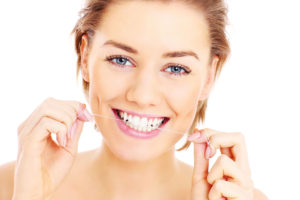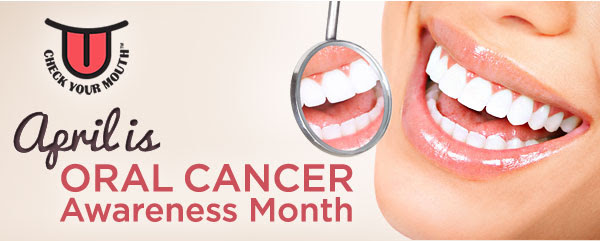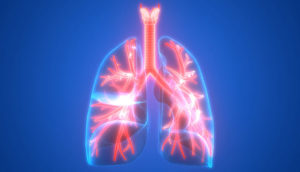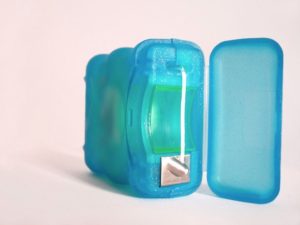Dentist Near Me

We’ve all been told at least once in our life that flossing daily is crucial. Here are four reasons why flossing may be beneficial for your oral health routine:
- Preventative care. Food and bacteria buildup between your teeth is unavoidable. Over time, these bacterial colonies lead to tooth decay and the destruction of your dental health. Flossing helps remove food and bacteria from areas that your toothbrush can’t reach.
- Helps prevent gingivitis and gum disease. Your teeth aren’t the only part of your mouth that needs attention. Many people take care of their teeth but ignore their gums. Researchers at the New York University College of Dentistry explain that the people who floss regularly experience much lower instances of periodontal pathogens, gum bleeding, and decay-causing bacteria in contrast with people who do not floss.
- Protects your smile. Flossing does more than just prevent cavities—it also preserves the bones that support your teeth. By preserving the height of that bony structure as well as a healthy smile, you’re maintaining a healthy and youthful appearance that will benefit you for years to come.
- Gives you better overall health. Gum disease doesn’t just affect your mouth and jaw. It has also been linked to heart disease, stroke, diabetes and even respiratory diseases. Flossing daily is more than just an optimal habit—it can help keep you healthy as you age.
We are pleased to offer a variety of oral health solutions to keep your smile healthy. We are also able to customize a health plan tailored to your specific needs. Book your appointment with our dental team today.
Peninsula Dental Care of Newport News
12821 Jefferson Ave., Newport News, VA 23608
(757) 874-7155



 Men, dental examinations and treatment are important for you, too. Did you know according to the Academy of General Dentistry (AGD), by age 72 men lose an average of 5 teeth? That number jumps to 12 if you are also a smoker. Here’s what you need to know about keeping your mouth healthy. Follow these tips and you can beat the odds stacked against men and their oral health.
Men, dental examinations and treatment are important for you, too. Did you know according to the Academy of General Dentistry (AGD), by age 72 men lose an average of 5 teeth? That number jumps to 12 if you are also a smoker. Here’s what you need to know about keeping your mouth healthy. Follow these tips and you can beat the odds stacked against men and their oral health.
 Men, dental examinations and treatment are important for you, too. Did you know according to the Academy of General Dentistry (AGD), by age 72 men lose an average of 5 teeth? That number jumps to 12 if you are also a smoker. Here’s what you need to know about keeping your mouth healthy. Follow these tips and you can beat the odds stacked against men and their oral health.
Men, dental examinations and treatment are important for you, too. Did you know according to the Academy of General Dentistry (AGD), by age 72 men lose an average of 5 teeth? That number jumps to 12 if you are also a smoker. Here’s what you need to know about keeping your mouth healthy. Follow these tips and you can beat the odds stacked against men and their oral health. Calcium is an important mineral for building strong, healthy teeth. Not everyone can tolerate the lactose found in dairy, which is often a prime source for calcium. There are a wide variety of options available to get the calcium you need. Here are six options rich in calcium:
Calcium is an important mineral for building strong, healthy teeth. Not everyone can tolerate the lactose found in dairy, which is often a prime source for calcium. There are a wide variety of options available to get the calcium you need. Here are six options rich in calcium: Are you embarrassed to show your smile because of missing teeth? For many people, missing teeth can create a feeling of diminished self-confidence. Modern dentistry can not only replace the gaps in your smile, our team can also create long-term replacements that look and feel just like your natural teeth. You have options. Here are a few of the most common tooth replacement solutions.
Are you embarrassed to show your smile because of missing teeth? For many people, missing teeth can create a feeling of diminished self-confidence. Modern dentistry can not only replace the gaps in your smile, our team can also create long-term replacements that look and feel just like your natural teeth. You have options. Here are a few of the most common tooth replacement solutions.
 It is not uncommon for many of us to grab a bite to eat in a hurry. Americans have grown accustomed to bigger food portions at restaurants, but our mouths have not. Trying to fit that oversized sandwich or apple in your mouth might be worse for you than you have ever imagined. Below are some reasons why this could be detrimental for your oral health and what you can do about it.
It is not uncommon for many of us to grab a bite to eat in a hurry. Americans have grown accustomed to bigger food portions at restaurants, but our mouths have not. Trying to fit that oversized sandwich or apple in your mouth might be worse for you than you have ever imagined. Below are some reasons why this could be detrimental for your oral health and what you can do about it. Individuals with severe gum disease or periodontitis, had increased risk for developing cancer compared with individuals with mild or no gum disease. In recent clinical studies, people with severe gum disease had more than double the risk for developing lung cancer and colon cancer.
Individuals with severe gum disease or periodontitis, had increased risk for developing cancer compared with individuals with mild or no gum disease. In recent clinical studies, people with severe gum disease had more than double the risk for developing lung cancer and colon cancer. Loose teeth, bad breath, and painful, bloody gums – these are among the signs and symptoms of periodontal, or gum, disease. Unfortunately, periodontal disease can also begin without any obvious symptoms. If left undiagnosed or untreated, you could be at risk for irreparable damage to your teeth and gums. The good news is that periodontal disease is preventable. In fact, one of the most effective tools for preventing the disease only takes a minute of your time each day.
Loose teeth, bad breath, and painful, bloody gums – these are among the signs and symptoms of periodontal, or gum, disease. Unfortunately, periodontal disease can also begin without any obvious symptoms. If left undiagnosed or untreated, you could be at risk for irreparable damage to your teeth and gums. The good news is that periodontal disease is preventable. In fact, one of the most effective tools for preventing the disease only takes a minute of your time each day.